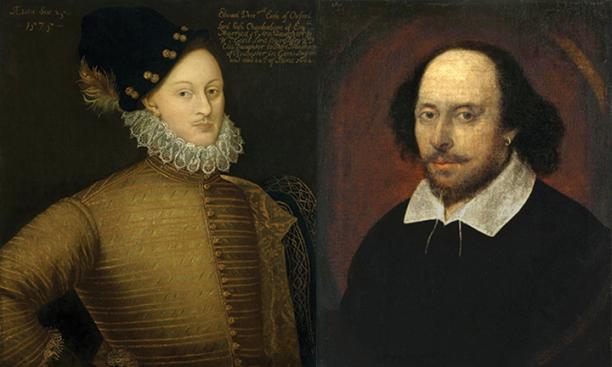
When Richard Waugaman ’70 was working on his philosophy dissertation at Princeton, looking at Nietzsche’s influence on Freud, he came across a curious footnote in one of Freud’s books. In it, the famous psychiatrist explained his belief in the theory that the plays of William Shakespeare were written by someone else: Edward De Vere, the 17th earl of Oxford. “I thought it was just a kooky theory,” remembers Waugaman, who dismissed it out of hand. Years later, however, he read a New York Times article about Oxford’s recently unearthed Bible, which was full of underlining and annotations. A literature professor had spent years analyzing the book and concluded that the phrases marked corresponded to those in Shakespeare’s plays to a degree far beyond chance.
Waugaman was intrigued, wondering if Freud might have been onto something after all. “This seemed like it involved actual evidence,” says Waugaman. He decided to see the Bible himself at the Folger Shakespeare Library in Washington, D.C., near his home in Potomac, Maryland. “The idea that I might be able to look at a book owned by the actual ‘Shakespeare’ really got my adrenaline going,” says Waugaman, a professor of clinical psychiatry at Georgetown. “I was literally afraid I would get so excited I would drop dead of a heart attack.” The heady experience started him on a two-decade journey to prove that Oxford wrote the world’s greatest plays under a different name. Along the way, he’s earned the esteem of a community of believers in the Shakespeare Oxford Fellowship, which named him 2021 “Oxfordian of the Year.”
Waugaman was a Shakespeare lover from an early age, buying a complete edition of the plays at age 14. He was always frustrated that there were so few biographies of the Bard. Outside of a few facts — that he was born a glovemaker’s son in Stratford-upon-Avon, he was a part-owner in London’s Globe Theater, and his name appeared on some 38 plays — scholars know very little about Shakespeare’s life. What they do know doesn’t seem to match up with the education and experience needed to write Shakespeare’s plays, Waugaman says. Oxford, on the other hand, led an exciting life at court and traveled in Italy, where many of Shakespeare’s plays are set. Waugaman takes a psychological approach to the question, arguing that events such as Oxford accidentally killing a man while fencing, and his estrangement from his wife over rumors of infidelity, provided rich fodder for Shakespeare’s drama. “I think the theme of pathological jealousy that shows up in some of the plays has to do with his sense of guilt,” says Waugaman. “I’ve noticed this dynamic in some people that after they’ve injured someone they feel a profound need to make up for that injury.”
In his own research, Waugaman has presented new textual evidence of similarities in language and spelling to argue that Oxford also authored 16th-century translations of Ovid’s Metamorphoses and Boccaccio’s Decameron — both major sources for Shakespeare’s work. While Waugaman understands such arguments are difficult for some Shakespeareans to swallow, he is used to swimming against the current. For decades as a psychiatrist, he has specialized in treating multiple personality disorder, which also was once treated skeptically by the discipline before seeing wider acceptance. “I’m used to people mocking some of my ideas,” he says adding, “I just let it redouble my motivation to research and write.”
Waugaman draws on his own experience to psychologically analyze mainstream scholars. He believes they struggle to let go of their emotional attachments to Shakespeare, preventing them from approaching the theory that someone else wrote the plays from a rational perspective. “It’s only natural that we want to know more about Shakespeare, because we want to form an emotional relationship with him,” says Waugaman, who sometimes jokingly refers to himself as an ‘Oxfreudian.’ “But from our perspective, they are speculating way too much and not being honest.”
While mainstream Shakespeare scholars may never be converted to an Oxfordian point of view, Waugaman sees increasing openness by the general public toward accepting the idea. “It’s not just about who wrote Shakespeare,” he says. “It’s about deepening our understanding of Shakespeare’s works, realizing there are levels and levels below levels in them, which will only cause us to appreciate them more.”
